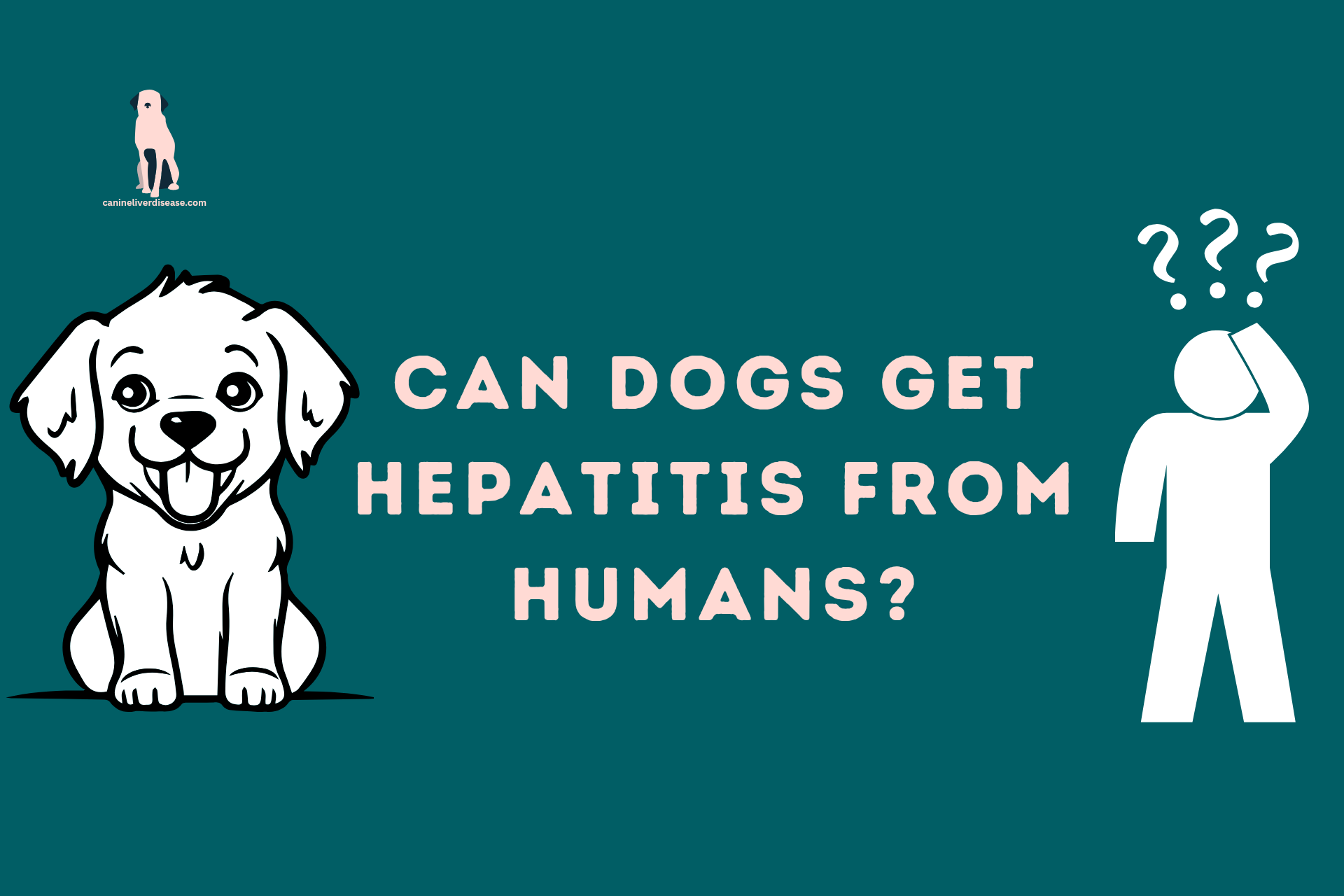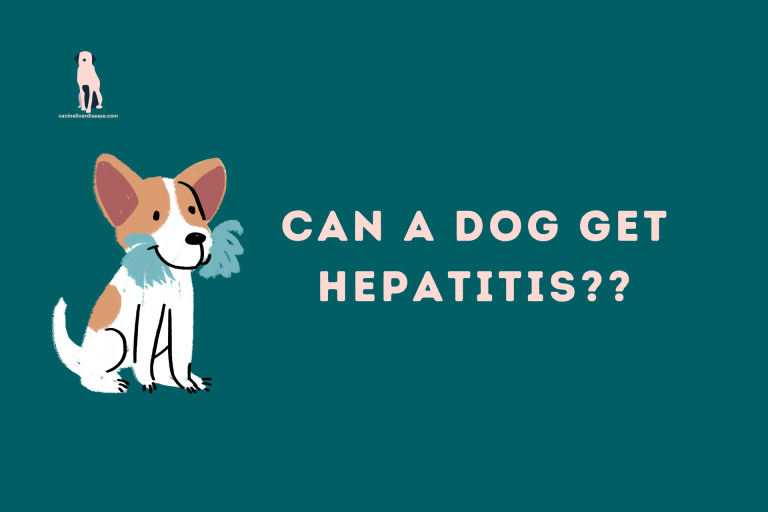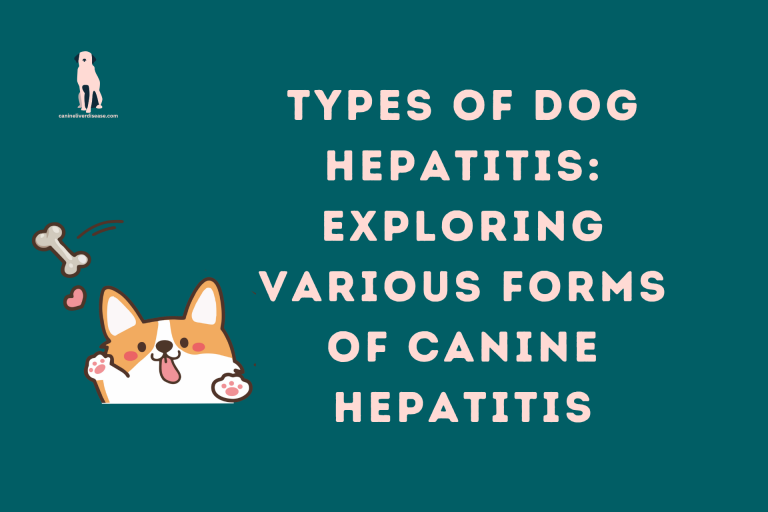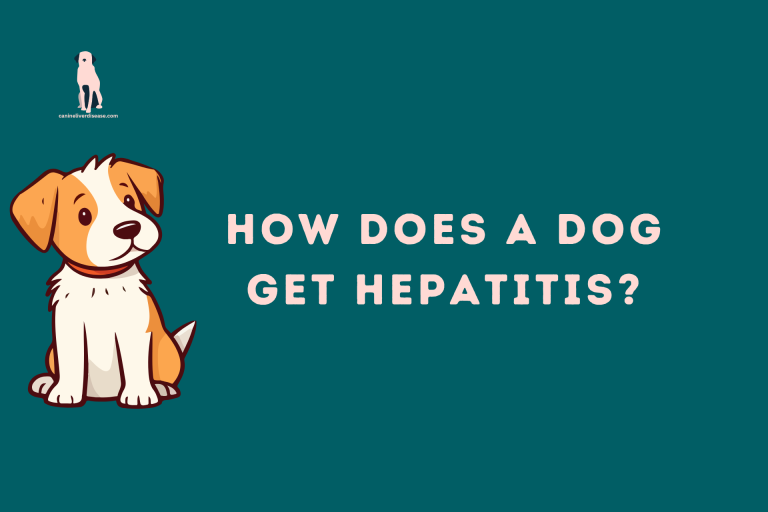Can Dogs Get Hepatitis From Humans?
Quick Answer: No, dogs cannot get hepatitis from humans.
Dogs hold a special place in our hearts in the world of pets and companionship. Their loyalty, affection, and the joy they bring into our lives are immeasurable. However, just like humans, dogs can also face health challenges. One such concern is canine hepatitis, which raises a question: Can dogs get hepatitis from humans? This comprehensive guide will delve into the intricacies of canine hepatitis, its transmission, symptoms, diagnosis, treatment, prevention, and whether it poses a zoonotic risk.
Understanding Canine Hepatitis
Canine hepatitis, caused by Canine Adenovirus, is a viral infection that primarily affects dogs. It primarily targets the liver, potentially leading to liver damage. While it is a dog-specific illness, concerns about its transmission between humans and dogs may arise.
Transmission of Canine Hepatitis
The transmission of canine hepatitis occurs primarily among dogs. It spreads through contact with an infected dog’s urine, feces, or saliva. Dogs can contract the virus through direct contact or by ingesting contaminated materials. However, the good news is that this virus is not known to infect humans. Canine hepatitis is not a zoonotic disease, meaning it cannot be transmitted from dogs to humans.
Symptoms of Canine Hepatitis
Detecting canine hepatitis early is crucial for effective treatment. Understanding the symptoms can help dog owners take prompt action. Common symptoms of canine hepatitis include:
- Fever: Dogs with hepatitis often run a high fever, indicating an underlying infection.
- Vomiting: Frequent vomiting is a sign of gastrointestinal distress, which can accompany hepatitis.
- Jaundice: Yellowing of the eyes and gums due to liver dysfunction.
- Abdominal Pain: Dogs may display discomfort or pain in the abdominal area.
- Loss of Appetite: A decreased appetite can indicate liver involvement.
- Increased Thirst and Urination: Dogs with hepatitis may drink more water and urinate frequently.
Diagnosis and Treatment
If your dog exhibits these symptoms, consult a veterinarian promptly. Diagnosis typically involves blood tests, liver function tests, and imaging such as ultrasound. Once diagnosed, treatment options may include:
- Supportive Care: Providing fluids and nutrition to support the liver and overall health.
- Medications: Veterinarians may prescribe medications to manage symptoms and aid recovery.
- Isolation: Infected dogs should be isolated to prevent the spread of the virus.
- Vaccination: Vaccination is a crucial preventive measure against canine hepatitis.
Preventing Canine Hepatitis
Prevention is always better than cure. Here are steps you can take to protect your furry friend from canine hepatitis:
- Vaccination: Ensure your dog receives regular vaccinations, including those against canine hepatitis.
- Hygiene: Maintain good hygiene in your dog’s living space. Cleanliness can prevent the spread of the virus.
- Avoiding Contact with Infected Dogs: Be cautious when exposing your dog to unfamiliar dogs, especially in areas where the virus is prevalent.
- Consult Your Veterinarian: Regular check-ups with your vet can help detect any health issues early.
FAQs
Q1: Can dogs get hepatitis from humans?
A1: No, dogs cannot get hepatitis from humans. Canine hepatitis is a dog-specific illness caused by Canine Adenovirus and is not zoonotic, meaning it cannot be transmitted from humans to dogs.
Q2: How is canine hepatitis transmitted among dogs?
A2: Canine hepatitis is primarily transmitted among dogs through contact with an infected dog’s urine, feces, or saliva. Direct contact or ingestion of contaminated materials can lead to transmission.
Q3: What are the common symptoms of canine hepatitis in dogs?
A3: Common symptoms of canine hepatitis in dogs include fever, vomiting, jaundice (yellowing of the eyes and gums), abdominal pain, loss of appetite, and increased thirst and urination.
Q4: How is canine hepatitis diagnosed?
A4: Diagnosis of canine hepatitis involves blood tests, liver function tests, and imaging, such as ultrasound, to assess liver damage and overall health.
Q5: What are the treatment options for canine hepatitis?
A5: Treatment for canine hepatitis may include supportive care with fluids and nutrition, medications to manage symptoms, and isolation to prevent the virus from spreading. Vaccination is also a preventive measure.
Q6: How can I prevent canine hepatitis in my dog?
A6: You can prevent canine hepatitis by ensuring your dog receives regular vaccinations, maintaining good hygiene in their living space, avoiding contact with infected dogs, and scheduling regular check-ups with your veterinarian to monitor your dog’s health.
Q7: Is there a risk of humans contracting canine hepatitis from dogs?
A7: No, there is no known risk of humans contracting canine hepatitis from infected dogs. This disease is specific to canines and does not pose a zoonotic threat to humans.
Q8: What should I do if my dog shows symptoms of canine hepatitis?
A8: If your dog exhibits symptoms such as fever, vomiting, jaundice, or abdominal pain, consult your veterinarian immediately for a proper diagnosis and treatment plan.
Q9: How effective is the canine hepatitis vaccine?
A9: The canine hepatitis vaccine is highly effective in preventing the disease. It is a crucial preventive measure to ensure your dog’s health and well-being.
Q10: Can my dog recover from canine hepatitis with proper treatment?
A10: With prompt diagnosis and appropriate treatment, many dogs can recover from canine hepatitis. However, the prognosis depends on the infection’s severity and the intervention’s timeliness. Consulting a veterinarian is essential for the best possible outcome.
Conclusion
In conclusion, dogs can get hepatitis, but it’s not from humans. Canine hepatitis is a dog-specific illness caused by Canine Adenovirus. While it can be a serious concern for our beloved pets, it is not a zoonotic disease, and humans cannot transmit it to dogs. Awareness, vaccination, and prompt veterinary care are the keys to ensuring your dog’s health and happiness.







